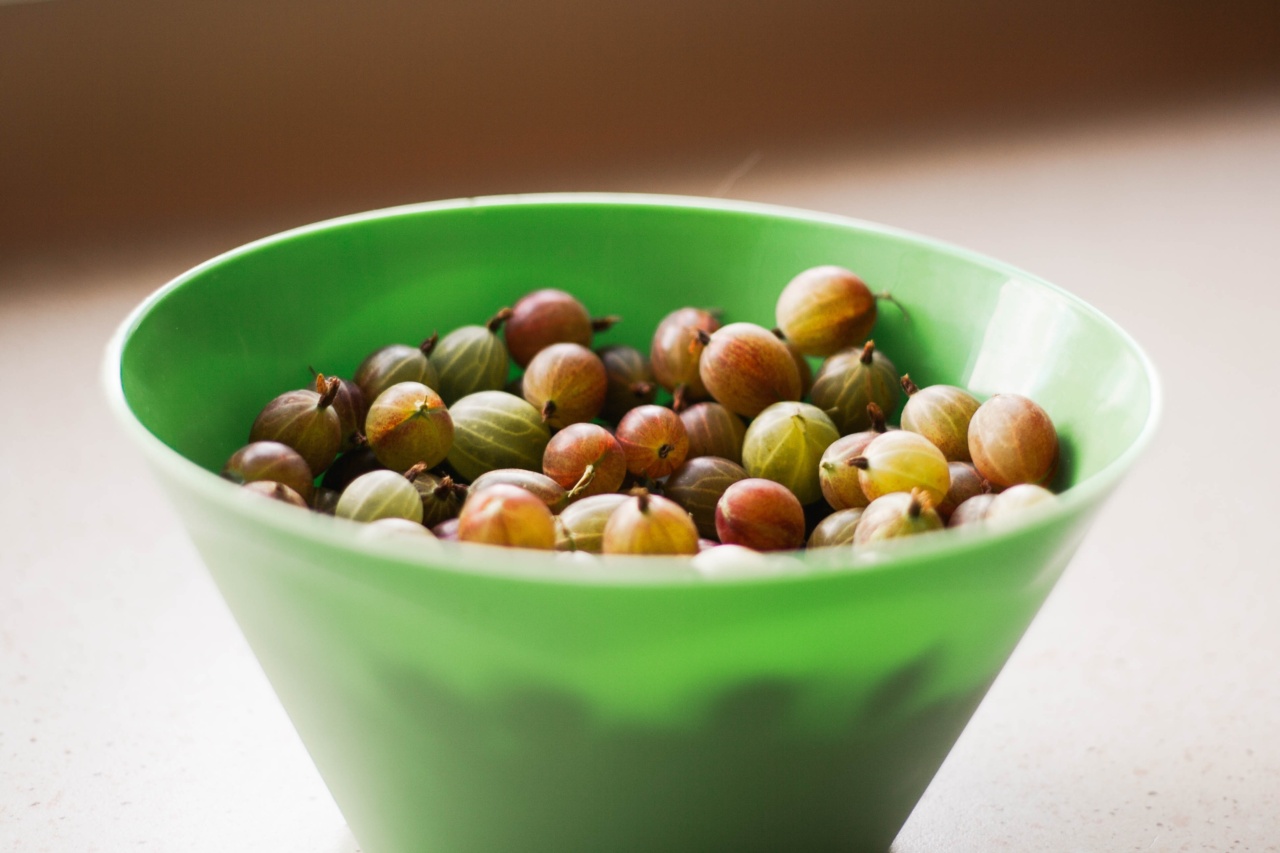Esophageal cancer is a serious and potentially life-threatening condition that affects the esophagus – the hollow, muscular tube that carries food from the throat to the stomach.
It is typically caused by the abnormal growth of cells in the lining of the esophagus, which can lead to the formation of tumors and the spread of cancerous cells. While there are various risk factors associated with esophageal cancer, such as smoking, excessive alcohol consumption, and obesity, maintaining a healthy diet can play a crucial role in preventing this disease.
In this article, we will discuss the importance of a healthy diet in preventing esophageal cancer and highlight the top foods that should be incorporated into your daily meals.
1. Cruciferous Vegetables
Cruciferous vegetables, such as broccoli, cauliflower, cabbage, and Brussels sprouts, are rich in nutrients and fiber that can help reduce the risk of esophageal cancer.
These vegetables contain compounds called glucosinolates, which have been shown to have anti-cancer properties. Additionally, the high fiber content in cruciferous vegetables aids in digestion and promotes a healthy digestive system, reducing the risk of esophageal cancer.
2. Colorful Fruits and Vegetables
Consuming a variety of colorful fruits and vegetables, such as berries, tomatoes, carrots, and sweet potatoes, can provide essential vitamins, minerals, and antioxidants that are beneficial for overall health, including the prevention of esophageal cancer. The antioxidants present in these vibrant fruits and vegetables protect the cells from damage caused by free radicals, which can lead to the development of cancerous cells.
3. Whole Grains
Replacing refined grains with whole grains, such as whole wheat bread, brown rice, oats, and quinoa, can significantly lower the risk of esophageal cancer.
Whole grains are rich in fiber, vitamins, minerals, and antioxidants that help maintain a healthy weight and reduce the risk of obesity – a major risk factor for esophageal cancer. Additionally, the high fiber content in whole grains aids in digestion and prevents the occurrence of acid reflux, which can damage the esophagus and increase the risk of cancer.
4. Lean Protein Sources
Opting for lean protein sources, such as poultry, fish, beans, and legumes, instead of red and processed meats can have a positive impact on preventing esophageal cancer.
Red and processed meats contain harmful compounds, such as nitrates and heterocyclic amines (HCAs), which have been linked to an increased risk of esophageal cancer. On the other hand, lean protein sources provide essential nutrients without the associated health risks.
5. Green Tea
Green tea is renowned for its health benefits, and its potential in preventing esophageal cancer is no exception.
This antioxidant-rich beverage contains catechins, which have been shown to inhibit the growth of cancer cells and reduce the risk of developing esophageal cancer. Incorporating green tea into your daily routine can be a simple yet impactful step towards preventing this disease.
6. Garlic and Onions
Garlic and onions are not only flavorful additions to your meals but also powerful allies in preventing esophageal cancer.
These allium vegetables contain organosulfur compounds that have been shown to have anti-cancer properties, especially against esophageal cancer. Including garlic and onions in your dishes can add both taste and protective benefits.
7. Citrus Fruits
Citrus fruits, such as oranges, grapefruits, and lemons, are excellent sources of vitamin C and other antioxidants that can help prevent esophageal cancer. Vitamin C plays a crucial role in boosting the immune system and protecting cells from damage.
Adding citrus fruits to your diet can not only enhance your overall health but also reduce the risk of developing esophageal cancer.
8. Healthy Fats
Including sources of healthy fats, such as avocados, nuts, and olive oil, in your diet can contribute to the prevention of esophageal cancer.
These foods are rich in monounsaturated and polyunsaturated fats, which have anti-inflammatory properties and help maintain a healthy weight. By reducing inflammation and obesity, healthy fats can lower the risk of esophageal cancer.
9. Herbal Spices
Various herbs and spices, such as turmeric, ginger, and cinnamon, possess potent anti-inflammatory and antioxidant properties that can aid in the prevention of esophageal cancer.
These flavorful additions to your meals not only enhance the taste but also provide protective benefits against the development of cancerous cells.
10. Water
While not a food, staying properly hydrated by consuming an adequate amount of water is crucial in preventing esophageal cancer.
Drinking enough water helps maintain a healthy digestive system, facilitates the elimination of toxins, and promotes overall health.
Conclusion
A healthy diet plays a pivotal role in preventing esophageal cancer.
By incorporating nutrient-rich foods such as cruciferous vegetables, colorful fruits and vegetables, whole grains, lean protein sources, green tea, garlic and onions, citrus fruits, healthy fats, herbal spices, and staying hydrated, you can significantly reduce the risk of developing this potentially life-threatening disease.
Alongside a healthy diet, adopting other preventive measures such as avoiding smoking and excessive alcohol consumption, maintaining a healthy weight, and regular exercise can further enhance your chances of preventing esophageal cancer and enjoying a long and healthy life.



























